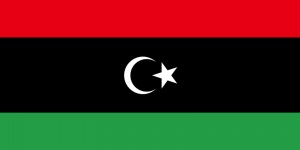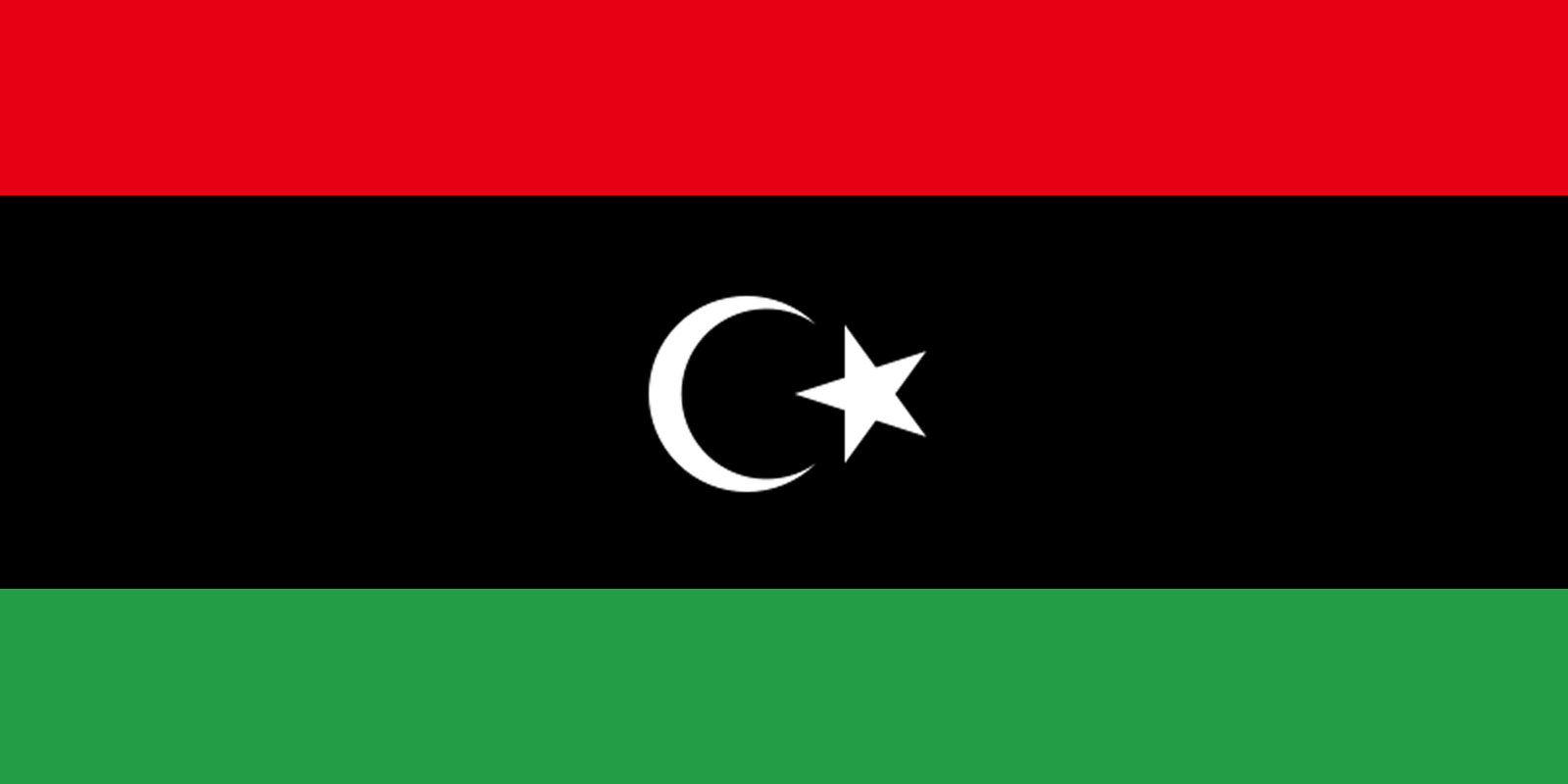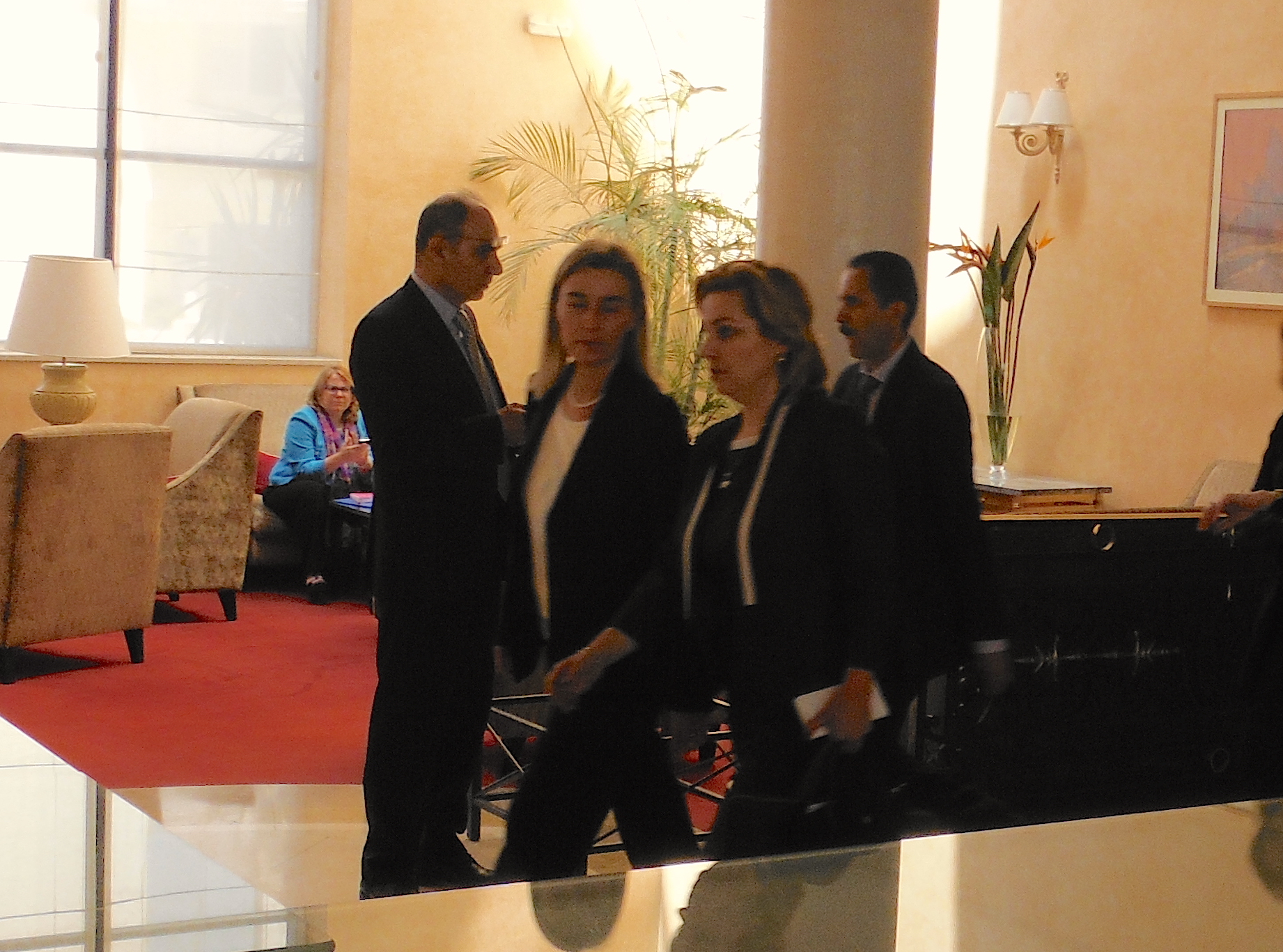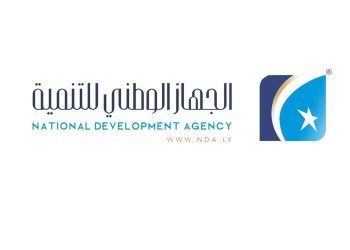By Azza K. Maghur.

Ottawa, 30 April 2014:
Libya has one government and one parliament.
Nevertheless, . . .[restrict]members of the international media and foreign policy makers around the world are distorting this simple fact by speaking of Libya’s government as divided. Repetition has created a misleading media narrative and imposed a perceptual reality that in effect divides Libya. It is pressuring the country’s beleaguered democratisation process to a point where it may be aborted, or worse, push Libya towards partition.
A Constitutional Declaration was written in August 2011 to guide Libya forward through the transitional period following its Revolution. Nevertheless, this essential document and the plan it lays out to lead a unified Libya to a democratic civil state is overlooked.
It is disturbing to see legitimate institutions, formed within the framework of the Constitutional Declaration, equated with so-called governments and institutions that are the product of violence. How are acts of war – storming the doors of governmental institutions, forcibly occupying ministries, shelling cities with missiles and destroying the country’s largest airport along with hundreds of millions of dollars of planes – be considered comparable to democratic process?
Peaceful transfer of power is a cornerstone in the democratisation processes of newborn democratic states. Libya went through three elections, two of which involved a transfer of power. In accordance with the Constitutional Declaration, Libyan voters elected the country’s House of Representatives (HoR) on 25 June 2014; the House of Representatives then appointed an interim government headed by Prime Minister Abdullah Al-Thinni.
How, after the hard-won steps Libya has taken towards democracy, can members of the diplomatic community and media refer to the democratically elected HoR as the “Tobruk parliament” and its legitimate government as the “Al-Thinni government,” thus ignoring the June 2014 election results and distorting the historical record?
Meanwhile, international media and diplomats refer to the remnant group of politicians in Tripoli as the “GNC,” the parliament that preceded the HoR. The General National Congress (GNC) mandate expired on 21 July 2014 when the results of the HOR election were announced. However, one week before, a coalition of Islamist and regional militias launched an armed operation, called Operation Dawn, to take over the capitol Tripoli. After weeks of urban warfare, it succeeded on 23 August. Operation Dawn’s first political move was to call on the GNC to resume sessions and to appoint a government. A small group of former GNC members began to meet and appointed Omar Al-Hassi as Prime Minister of, what he termed, a National Salvation Government.
Needless to say, the imposition of the rump GNC had no footing in the Constitutional Declaration and was in violation of democratic principles. The mandate of the GNC had expired and there is no constitutional provision for its return. In reality, the rump GNC, composed of thirty or fewer of the original 200-member parliament, became the political arm of the Operation Dawn militias.
How is it possible for a country unified under a Constitutional Declaration to have a “Tobruk parliament” and at the same time a rump “GNC”? The intent of this article is to dust off the truth and build a better understanding of Libya’s governing institutions and the plan laid out in the Constitutional Declaration.
Phase 1: The Constitutional Declaration, August 2011
The Constitutional Declaration was issued by the self-proclaimed political entity? ?of the February 2011 Revolution, the National Transitional Council (NTC). It was simple and recognised the self-proclaimed NTC as the highest authority of the state, granting it a mix of legislative and executive powers. It allowed for the NTC to appoint (and dissolve) a cabinet to govern. A timetable stipulated that the NTC hand over power to an elected body, the GNC, within 240 days from the declaration of the liberation of Libya. Elections for the GNC were held on 7 July 2012 and on the 8 August, in a ceremonial event, the NTC publicly announced the transfer of power to the first parliament elected by Libyans in nearly 50 years.
The ceremony took place under the scrutiny of a people who had survived generations under dictatorship. On that remarkable day, at a time when militias were positioned in every corner, in every city, the NTC managed to transfer power to a purely civil entity chosen by the Libyan people. Nevertheless, the transfer ceremony was not without incident. Salah Badi, an elected GNC member who had fought bravely in the war against Qaddafi, demanded that a young Libyan woman leave the stage because her head was uncovered. Sarah Messelati, who was only 22, left the room quietly. However, shamefully no one in the gathering, including women representing 16% of elected GNC members, spoke up in her support. That day, everyone’s hearts and eyes were clinging to the power transfer ceremony and eager for it to take place as quickly and quietly as possible.
In addition to establishing the GNC, the Constitutional Declaration also created the Constitutional Drafting Assembly (CDA) tasked with writing the future Libyan constitution. It allowed 60 days for the CDA to draft the Constitution and then forward it to the Libyan people for referendum. This period was later extended to 180 days.
Phase 2: The General National Congress, July 2012-July 2014
In July 2012, the GNC replaced the NTC as the highest authority of Libya. The main goal and task of the GNC during its mandate was to establish the Constitutional Drafting Assembly (CDA). Following ratification of the Constitution, a second transfer of power would occur, with the GNC handing over to the newly-elected institutions prescribed in the Constitution. In summary, this second phase was about drafting a constitution and a subsequent peaceful power transfer, by which the transitional period would end and a new democratic civil state would be launched.
? ?
However, the GNC neglected its mandate, interfered with the executive branch and focused on promulgating a political isolation law by which Libyans became unequal before the law. This law was adopted in May 2013 under armed pressure from militias connected with sympathetic members of the GNC.
Finally, after eight months, the GNC realised it had been sharply diverted from its principle mission and appointed a committee to draft the CDA election law. The CDA election took place in February 2014, over a year and a half after the GNC assumed office. The CDA’s first session was held in the town of Beida in April 2014.
Phase 2.5: The February Committee, February-April 2014
As the GNC tenure wore on, it became increasingly apparent that the body was unable to run the country? ?efficiently and its interference with the executive was making governance an impossible mission. When the GNC finally initiated the process of drafting the CDA election law in April 2013, disgruntled Libyans were already in the streets demanding that the GNC step down and transfer power to a new representative body.
Every time the GNC stretched the period of fulfilling its major duty, the establishment of the CDA, it also stretched its own mandate and continued to be the highest authority in the country. It became clear that the simplicity of the Constitutional Declaration did not account for a separation or balance of powers between the executive and legislative branches of government. The conclusion reached by the citizenry and many members of the GNC was that the limitations of the Constitutional Declaration made the GNC inadequate as a vehicle to take Libya out of the transitional period to a modern constitution.
Under tremendous pressure from within the GNC and the general public, a Sixth Amendment to the Constitutional Declaration was adopted by the GNC, by which a new phase was drawn to revive the democratisation process. The GNC created a constitutional committee called the February Committee to take the necessary steps to amend the Constitutional Declaration to allow new parliamentary and presidential elections. Accordingly, the GNC decided to end to its existence, even before a constitution was issued and transfer power to a new parliament. This new parliament would be based on democratic principles, including separation of powers between branches, a series of checks and balances and a distinctly separate executive branch headed by an elected president with a clear mandate to state powers. By taking this step, the legislative power would no longer be the highest authority of the state of Libya.
A new road map introduced by the February Committee added an additional phase to allow for a new parliamentary body, the House of Representatives (HoR) and a directly elected President. Most significantly, the February Committee introduced a conventional module of governance based on equilibrium and separation of powers.
On 31 March 2014, the GNC adopted the February Committee’s first set of recommendations. However, the matter of the election of a President of the State was postponed to be reviewed by the HoR. The newly elected HoR would resolve whether the President would be elected directly by the people (as recommended by the February Committee) or by the HoR. By doing so, the GNC again created hurdles to the democratisation process. The elements of the February Committee proposal were interconnected and could only be adopted as a whole. Any substantive changes or postponement of the proposal’s clauses rendered the concept of democratisation refreshment useless.
Therefore, a third and additional phase, which was not originally anticipated in the Constitutional Declaration, was adopted by the GNC in March. On 29 April , the GNC passed Election Law Number 10 of 2014 to provide for the election of the HoR. This third phase afforded a dignified exit to the GNC and a peaceful hand over to a new parliament. The GNC was under an obligation to fulfil the peaceful transfer of power to the HoR as its predecessor had to it. Any failure to do so entailed individual legal responsibility of GNC members before the law.
Phase 3: The House of Representatives, June 2014-present
The GNC adopted a series of required legislative steps to insure a peaceful transfer of power to the HoR. These included a decree issued by the GNC President ordering preparations for the ceremonial transfer of power to the HoR and calling on the HoR to convene.
Beginning in May 2014 armed conflict ignited in parts of Libya and till now, this continues to complicate Libya’s transition to democracy. At the time of the 25 June election, fighting was underway in the city of Benghazi. An thinkable tragedy unfolded the night of the election when Salwa Boughaigis, a prominent civil society activist, lawyer, and deputy president of the National Preparatory Dialogue Commission, was brutally murdered in her home in Benghazi, not long after she posted on social media photos of herself voting. Her husband, Essam Gheriani, was kidnapped and to date has not been found. A national hero for her role in the revolution, Boughaigis became one of hundreds of Libyan civil society activists, military and security professionals, politicians and media figures assassinated in the years following the revolution.
On 21 July 2014, the High National Elections Commission announced the results of the H0R election: 188 members out of 200 were elected. The remaining twelve would have been from communities that were prevented from voting by extremist militias. In addition Amazigh communities chose to boycott the election as part of their campaign against what they claimed was constitutional marginalisation.
In line with the February Committee recommendations, the seat of the HoR would be located in Benghazi. Preparations were already in progress to refurbish the Tibesti Hotel as its headquarters in order to allow the HoR to begin meeting there by the end of July. However, the combination of armed conflict, the closure of the airport in Benghazi and other violent incidents made it infeasible for the HoR to convene in Benghazi. The freshly-elected body was forced to quickly find a new place to meet. Given that armed conflict had spread to Tripoli, HoR members followed the suggestion of the body’s senior members and convened in the quiet eastern city of Tobruk on 4 August.
By the time the HoR convened, Libya’s democratisation process was in deep crisis, but still surviving. Urban warfare in Tripoli compelled many residents to flee the city, including government ministers who began meeting in the relatively calm and secured city of Beida where the Constitutional Drafting Assembly had been working. This phase of the transitional period can certainly not be described as peaceful. How could it be in a country in the grip of militias?
The inaugural meeting of the HoR was attended by 158 of the 188 elected members; thirty members boycotted in protest of the change of location and some remnant GNC members tried to halt the process under pretext of ceremonial procedure.
Despite the series of decrees the GNC had issued to initiate the necessary steps to ensure a peaceful transfer of power, members of the body, led by its President, Nouri Busahmain, refused to attend the meeting in Tobruk. However, the inaugural session was attended by the GNC’s First Deputy, Ezzedine al-Awami. Al-Awami represented a large bloc of GNC members who supported the democratisation and legitimacy requirements defined by the Constitutional Declaration. This document, as amended by the February Committee, emphasises that the HoR must convene within two weeks of the date of the HNEC announcement of the final election results. This precise date, 21 July 2014, constituted the transfer of power between the GNC and its successor. The Constitutional Declaration stipulates that power and legitimacy originate from the people as “the source of powers.” Therefore, all other related acts and decisions from the previous legislative power are considered ceremonial only and add nothing to the result of the elections.
Immediately after the GNC was announced to be back on stage by the Operation Dawn militias, the media began to use different terms when writing about Libya. The international press went from celebrating the HoR elections, covering the HNEC’s announcement of the winners and speculating on the leadership and political composition of the new parliament, to writing as if Libya had two parliaments and two governments, in effect rendering Libya’s short but rich democratisation process insignificant.
The democratisation process and its values, including the transfer of power, do not depend on protocol and ceremonies. Ceremonial procedures are never considered an impediment during the democratisation process; the crucial and substantive principle of the transfer of power overrides ceremonial procedures. Peaceful transfer of power constitutes a vital obligation for democracy, while the ceremonial process of “hand over,” if any, is merely a public declaration of it. Ceremonial steps cannot be used to impede or block the democratisation process. The rump GNC, however, reached a point where it denied any transfer of power, for the simple reason that the GNC President’s insistence to hold the handover ceremony in Tripoli was not accepted by the HoR. To accept the rump GNC’s position would be to say that one person, i.e. “the Speaker of the Parliament,” can twist the whole concept of democracy, and block it.
In addition to the pressures exerted on Libya’s democratisation process, foreign policy makers and the international media are undermining the process by imposing an unlawful, illegitimate and artificial reality. Each of the many references to members of the former GNC as the “GNC,” as if the dissolved body continued to exist, constitutes a false and erroneous statement. There is no longer the GNC body; rather, there are some former members of the former GNC who are contravening the spirit of the Constitutional Declaration and the essence of democracy. The GNC wittingly ended its term in office, amending the Constitutional Declaration and issuing legislation and decrees. It can never reverse this process because it is a legal obligation and the GNC is obliged to fulfil this obligation.
The remnant GNC members are claiming that they are still in power based on their interpretation of the Libyan Supreme Court November 6, 2014 ruling. They argue that it dissolves the HoR. Regardless of whether or not this is a correct interpretation, dissolving the HoR does not allow the GNC to return as the governing authority in Libya. If the HoR were dissolved, it would only open venues for new elections, a new road map and a new phase in Libya’s difficult road towards democracy based on the Constitutional Declaration, a political agreement or on a new constitution.
Today there is neither a GNC, nor a so-called National Salvation Government. Legitimacy is not a carte blanche conferred by the media or policy makers. Power can be divided and shared, but legitimacy cannot. If democracy is not only about elections, it is certainly about the transfer of power. If elections alone do not consign legitimacy, then refusal to transfer power is the suffocation and poisoning of democracy itself. The conclusion is that Libya has one government and one parliament. To think or write about the Libyan State in any other way, gives a false image of Libya and threatens the country’s troubled democratisation process, recklessly pushing it towards possible partition.
Azza Kamel Maghur is a Libyan lawyer, human rights activist and former member of the 2014 February Committee tasked by the General National Congress to amend the transitional Constitution and prepare the elections law.
The opinions expressed do not necessarily represent those of the Libya Herald.






